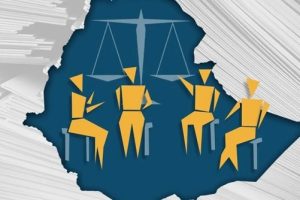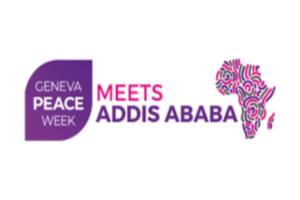BY FITSUM GETACHEW
There are now lots of talks about elections in Ethiopia. The season was officially inaugurated with the launch of the election campaign of the ruling Prosperity Party by the president of the party Prime Minister Abiy Ahmed. Finally, it appears that after so many ups and downs, in fact more downs than ups, this famous 2020 election that was postponed due to the COVID pandemic last year will now take place after all. It is scheduled for the beginning of June 2021.
It is known that this election is the sixth that is carried out after the fall of the military government in 1991. Five successive elections were held in this country each every five years by the ruling EPRDF coalition.
The understanding we had and the way things were presented to us by the ruling party was that EPRDF was indeed a party (or a coalition of four major parties) composed on an equal and fair basis and availing of equal influence or power in the group.
However, even if almost everyone who did not trust it wholeheartedly had the suspicion that it did not look fair nor represented and served the Ethiopian people in a just and equal manner, we are now hundred percent assured that the 27 years we lived under the EPRDF largely dominated by one of the four, TPLF were really a waste during which unbelievable, hard-to-swallow injustices and the gravest of violations of human rights were regularly committed under our watch.
Ethiopia was portrayed as a feudal system whereby peoples of all nationalities were administered unequally and unfairly and there would be bright prospects for citizens only with the system planted in the post-1991 period.
Hence a lot of talks were carried out and large coverage of the media was prepared to back these narratives and inculcate the minds of an entire generation of people who were born and brought up during these famous three decades.
Instead, what we had been taught to believe and absorb was in fact all a house of cards! It resulted with tangible proof that it was all a façade for a few families, well networked amongst themselves, and were bent to plunder all the resources of the country.
They exported as much as they could in the form of saving or investment abroad while at home millions languished in the worst cases of poverty and underdevelopment.
The reports we have now come to own show that tremendous and systemic banditry was carried out interruptedly and undisturbed on the skin of innocent Ethiopians. And we like it or not, we cannot escape a certain share of the blame by contributing to this extended drama, be it in full consciousness or in total apathy that amounted to complacency.
In the end there is this common saying that “the government a people have is what it actually deserves!” As controversial as this saying may be, the idea behind it seems that if there is something wrong with our leaders or representatives, we the people must do something to rectify it, using whatever system or method may be available.
There are a multitude ways of objecting to the policies of a certain government, but if we applaud all the injustices we had to go through seeing that it was not fair at all, it means we have failed as a people in general; and we have exposed ourselves to the cruelest of exploitations and abuses.
Ethiopians were led to believe that in the elections that were carried out in the past five instances, there was genuine contest among multiple choices enjoying all the necessary preconditions to be able to run for a seat in parliament etc.
We were led to believe that there was more or less reasonably level playing field among candidates and that the outcome would not be that much manipulated by forces that are loyal to the incumbent.
We were also led to believe that the observers, the National Electoral Board of Ethiopia officials, the judiciary, the parties etc in short all those who were presented as ‘stakeholders’ and all those that got involved in the process were doing a genuine and valid work.
When the elections were contested many of us believed that the results were fair and all the seats that the ruling party and so called partner parties all deserved the seats. Hence, the power they had was widely taken as ‘legitimate’.
What is more, the certification that came from many so called international observers and reporters gave us more reassurance that the elections carried out in Ethiopia were sound. Of course this does not mean that there were not fierce opposition groups who severely criticized the operation of the government.
These did try to make their voiced heard by presenting allegations of abuse of power or corruption and all sorts of irregularities pertaining to the polls. However, the way the government handled these voices was relatively easy and its grip on power was in fact never challenged vigorously.
Unfortunately, similar ‘theatrics’ are not new or unheard of in many other African countries where a semblance of democracy and free elections are experienced in many countries. Few would qualify to be labeled genuinely democratic, free and fair, transparent and credible by the standards many western democracies have set.
We have observed that elections are very easy to manipulate in Africa (Ethiopia not excluded) due to several factors, mainly because there are no reliable democratic institutions that are independent of the incumbent. The party and the government are hardly distinguishable and the resources of the two are usually used interchangeably whereas this should not be the case at all.
This is a very big and crucial point. This separation determines the credibility of the elections or else it is bound to cast a shadow of doubt on its authenticity. What is more, we have seldom seen incumbent governments leave office voluntarily, without contesting the results, if they have been told they have lost!
First of all, rarely have we seen governments in Africa lose elections and admit it and leave office smoothly! For this to happen, the incumbent must really be extremely unpopular or totally inefficient and incapable of governing.
It must be such a government that does not even have good advisers and strategists and public relations campaigners. Otherwise, most African governments are seen claiming credit for things they have not even achieved and engage in an extensive propaganda campaign, not only glorifying what they did but also denigrating and dismissing the counterclaims of any probable opposition to their grip on power.
If in fact such government agrees to leave office because it admitted loss, we must congratulate such countries because it is rare.
Among the very early good examples in Africa were that of Zambia under Kaunda and Tanzania under Nyerere, both prestigious leaders who admitted loss and left office when they failed in their bid for re-election. Unfortunately, they have not produced good students or followers elsewhere in the continent.
Most of the controversies we hear about today relate to issues pertaining to elections and governments trying to overstay on power defying the verdict of the constituencies or changing the rules of the game during the same.
Now in many cases, we hear about pre-election controversies, election day violence and post election polemics. Unfortunately, very often these days turn violent causing so much damage, destruction and even precious lives. This is really sad because in most well established democracies nothing of this is the norm. It is only in exceptional cases that violence occurs during election seasons and very rarely that casualties occur. They have managed to make such episodes part of their past history!
Of course human nature is not perfect and it would be understandable if some sporadic controversies occur. Some unusual movements may happen. Some controversies may create unrest for a while. We have even seen court cases staged. But in the end, the process takes place in a clean and balanced manner. The rules of the game are observed strictly.
There cannot be changes during the game and the verdict of the people is not only respected but it is also guaranteed or secured by the neutral and independent institutions such as the media, the judiciary and civil societies.
The few days of dust and turmoil in the post election period begins to settle. Things continue as usual without any particular hiccups and failures because life continues after all.
This is however unheard of in many cases in the less democratic countries. What we see is ‘an ugly copy’ of the western elections. The reasons seem multiple.
The level of maturity of the peoples of these regions or countries is low compared to the above mentioned states. Those in the West have had a long spell of democratic practices they have undergone various epochs of election processes.
Rallies, campaigns, debates, both in the halls and in the media as well as other related activities are the usual practice and people have ample time to study the policies of each party or personality to be able to make an informed choice. People do not align with a party or candidate only because they hail from the same origin but because of their ideas and thoughts.
Yes, there were cases when they did hold imperfect elections earlier. For years they had their share of violence, conflicts and destructions including casualties. But they continued to make progress, improving along the years. Adjustments were made on how to minimize these unwanted episodes and less and less violence was experienced.
People came to be more responsible and the frequent elections and frequent changes of administration meant that there could be periodic rotation of power.
Monopoly for a lifetime, as we see in some African countries, is indeed rare. And above all origin or identity of candidates or parties are not central to any choice. It is policies that matter, ideas that matter, not identity as we too often see in African settings.
We need to admit that tribal instincts, clan instincts are rudimentary sentiments that are not worthy of this century. Politicians who try to dwell on such issues may probably be without valid thoughts or policy alternatives. Identity politics is dangerous and its rationality is questionable.
In Africa, we have seen recently incumbent governments changing the rules of the game which restricts tenure of office to a limited period of time. We have seen them breaking restrictions of age. We have seen several other restrictions violated; and we have seen that the so called neutral and independent institutions are commanded or influenced by the party or government in power.
This has facilitated or enabled all forms of abuse. Those who would like to fairly contest elections would be overpowered by such force which in short resorts to abuse of power. The playing field is not level. There is not fair competition. There is not fair contest.
Hence, the results cannot be the true face of the constituencies. If elections do not reflect the true choice of the people, what is the use of it all? That is why it is said elections have meanings only if they present choices to the electorate. Accordingly that is why we must all do our part to make a success of the upcoming election in Ethiopia.
The Ethiopian Herald February 25/2021



